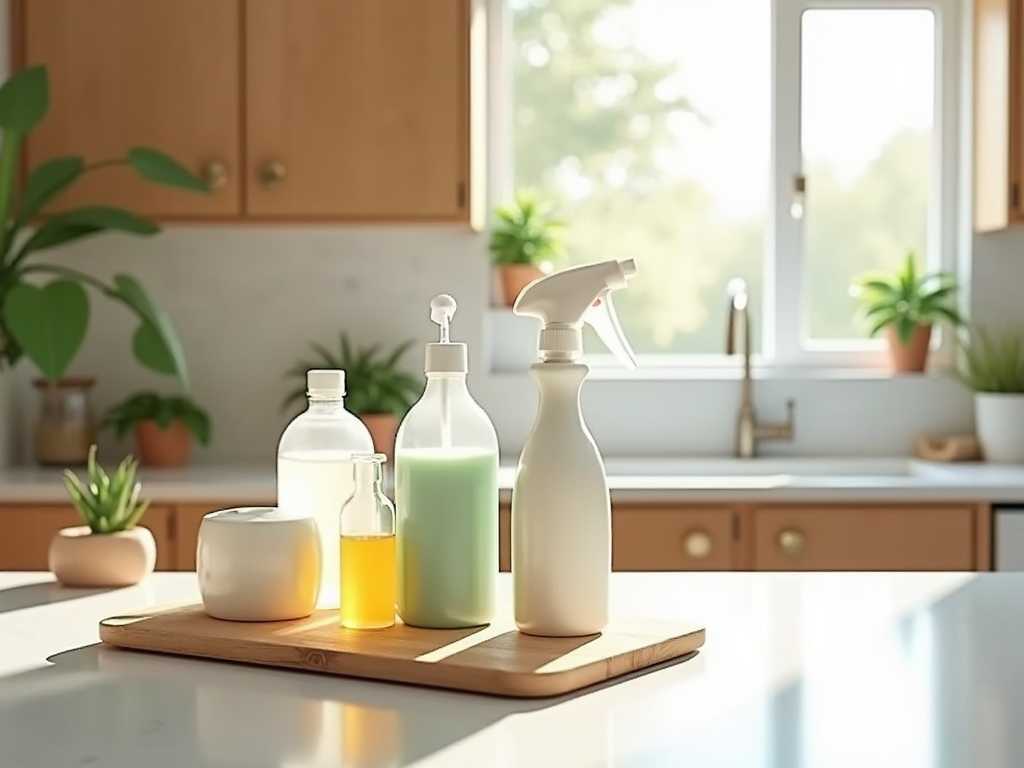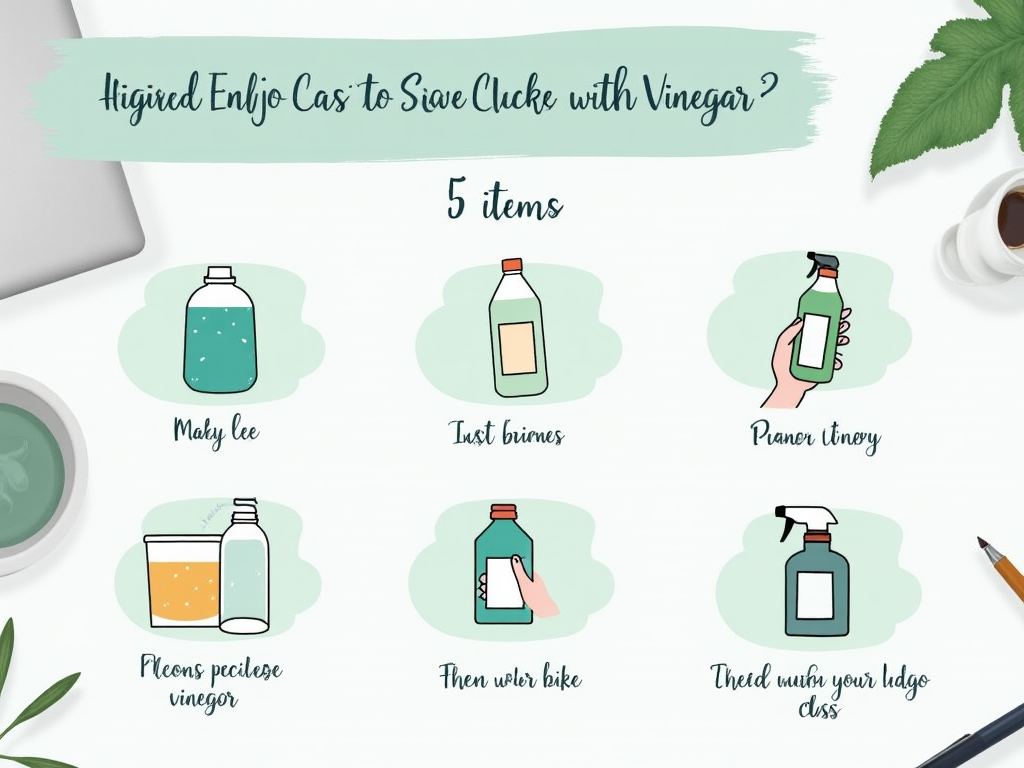5 Things That Should Never Be Cleaned With Vinegar

Vinegar is often touted as a magic elixir in the realm of home cleaning. Its natural antibacterial properties and versatility can make it seem like the perfect solution for tackling various household messes. However, the truth is that not all surfaces and materials are compatible with vinegar’s acidity. In fact, using vinegar on the wrong items can lead to irreversible damage, which is the last thing anyone wants when trying to maintain a pristine home. To ensure that you’re making informed choices about your cleaning supplies, here’s a comprehensive look at the five things you should never clean with vinegar.
Delicate Fabrics

Delicate fabrics are particularly vulnerable to the harsh effects of acidic substances like vinegar. Items such as silk, lace, or certain types of wool can suffer irreversible damage ranging from color fading to fabric weakening. If you’re tempted to reach for the vinegar for cleaning spills or stains, think twice! It’s crucial to recognize that these lovely materials require special care. Instead, choose cleaning products designed specifically for these delicate fabrics, ensuring they remain vibrant and intact.
- Silk
- Lace
- Delicate wool blends
- Chiffon
Natural Stone Surfaces

Natural stones like granite, marble, and limestone are breathtaking additions to any home, but they are also quite sensitive. The acidic nature of vinegar can seriously erode the protective sealant on these surfaces, leading to discoloration or even unsightly etching over time. Cleaning natural stone should be approached with caution and a keen awareness of the products you’re using. Ideally, you should invest in pH-neutral cleaners specifically formulated for such surfaces to preserve their beauty and integrity.
| Stone Type | Recommended Cleaning Method |
|---|---|
| Granite | PH-neutral cleaner |
| Marble | Soap and water solution |
| Limestone | Specialty stone cleaner |
Egg Stains
Cleaning up after a broken egg can be a messy ordeal, and using vinegar may only complicate matters further. Surprisingly, vinegar can set both the protein and color in egg stains, making them more difficult to remove rather than easing the cleanup. Instead, the best course of action is to use cold water immediately after the spill occurs, followed by a gentle dish soap designed to cut through grease. Using vinegar here not only defeats the purpose of cleaning but may lead to the need for more aggressive cleaning methods later.
Electronics and Screens
When it comes to cleaning electronics and screens, vinegar should be completely avoided. The sensitive components inside your devices, as well as the protective coatings on screens, can be damaged by vinegar. This not only puts your devices at risk but could potentially void warranties as well. Instead, it’s advisable to use microfiber cloths lightly dampened with distilled water or cleaners made specifically for electronic devices. Such care will ensure that your gadgets remain in optimal working condition without the risk of damage.
Certain Wooden Surfaces
Not all wood surfaces are created equal, especially when it comes to cleaning solutions. While some untreated or unsealed wood may tolerate mild vinegar solutions, varnished or treated wood can suffer serious consequences from the application of vinegar. Over time, vinegar can strip away the wood’s protective finish, leading to dullness and potential damage. Before applying any cleaning solution to wood surfaces, it’s essential to read the manufacturer’s guidelines. Erring on the side of caution can save a lot of trouble and preserve the integrity of your wood furnishings.
Conclusion
In conclusion, while vinegar offers a wide range of cleaning benefits, understanding its limitations is crucial for maintaining your home’s surfaces and items. Delicate fabrics, natural stone surfaces, egg stains, electronics, and certain wooden surfaces are just some examples where vinegar can do more harm than good. Opting for alternative cleaning agents tailored to these materials can save you from potential damage and costly repairs. By being mindful of what you use, you can ensure a well-maintained and beautiful home.
Frequently Asked Questions
- Can I use vinegar on vinyl floors? No, vinegar can dull the finish on vinyl flooring. Use a cleaner specifically designed for vinyl materials.
- Is vinegar safe for cleaning stainless steel? Vinegar can leave streaks and tarnish on stainless steel. Use a dedicated stainless steel cleaner instead.
- What happens if I accidentally clean something with vinegar? The outcome depends on the material—it could range from minimal effects to irreversible damage. It’s best to consult the manufacturer’s care instructions.
- Are there types of wood that can be cleaned with vinegar? Only unsealed or untreated wood may tolerate vinegar, but it’s best to avoid it altogether for any wood type to prevent damage.
- What should I use to clean glass surfaces instead of vinegar? A mixture of dish soap and water or a dedicated glass cleaner would be a better option for pristine results without the risk of streaking.


